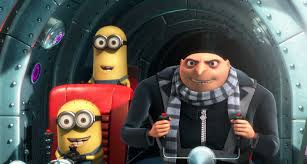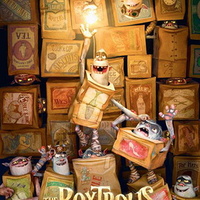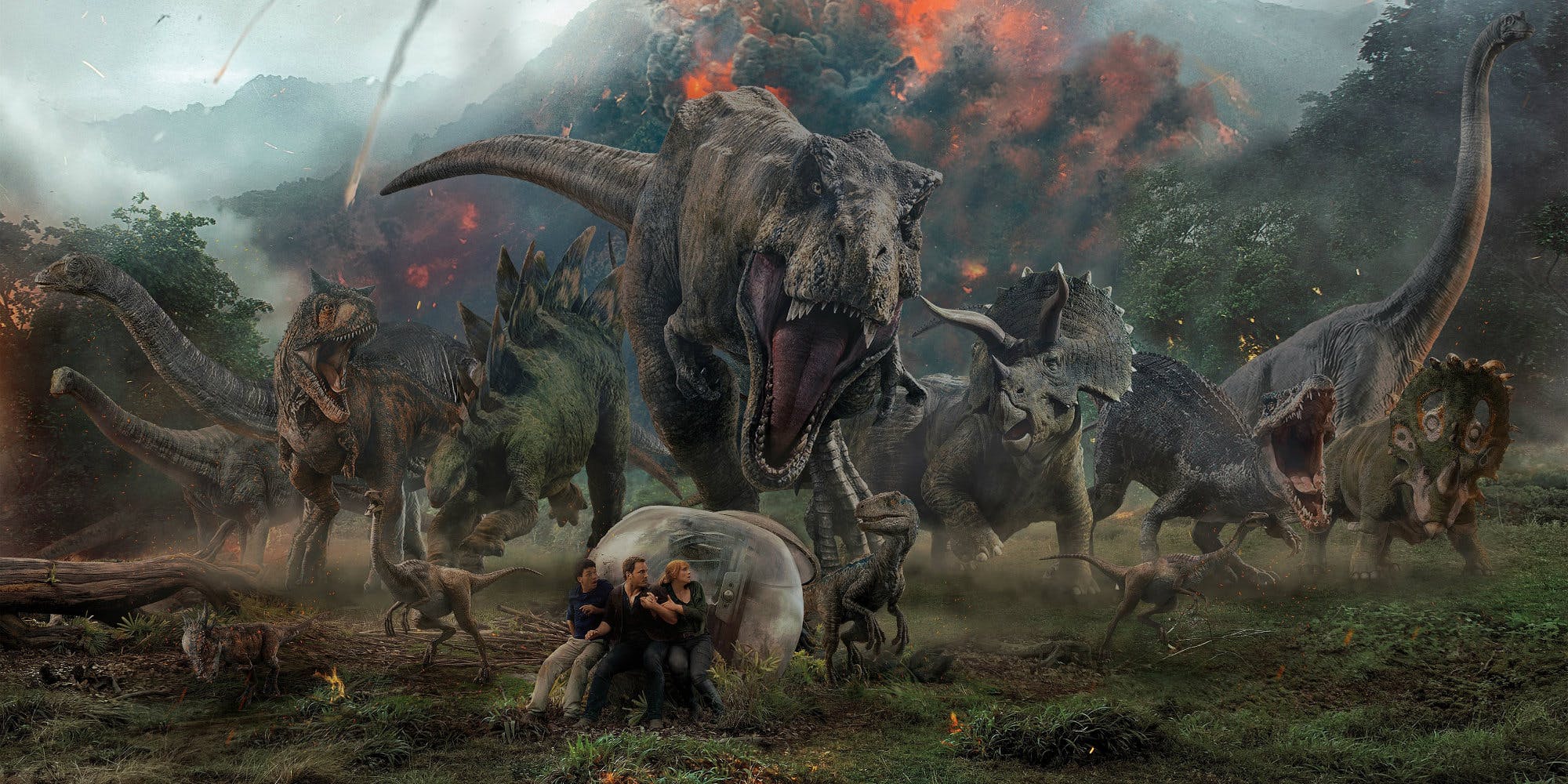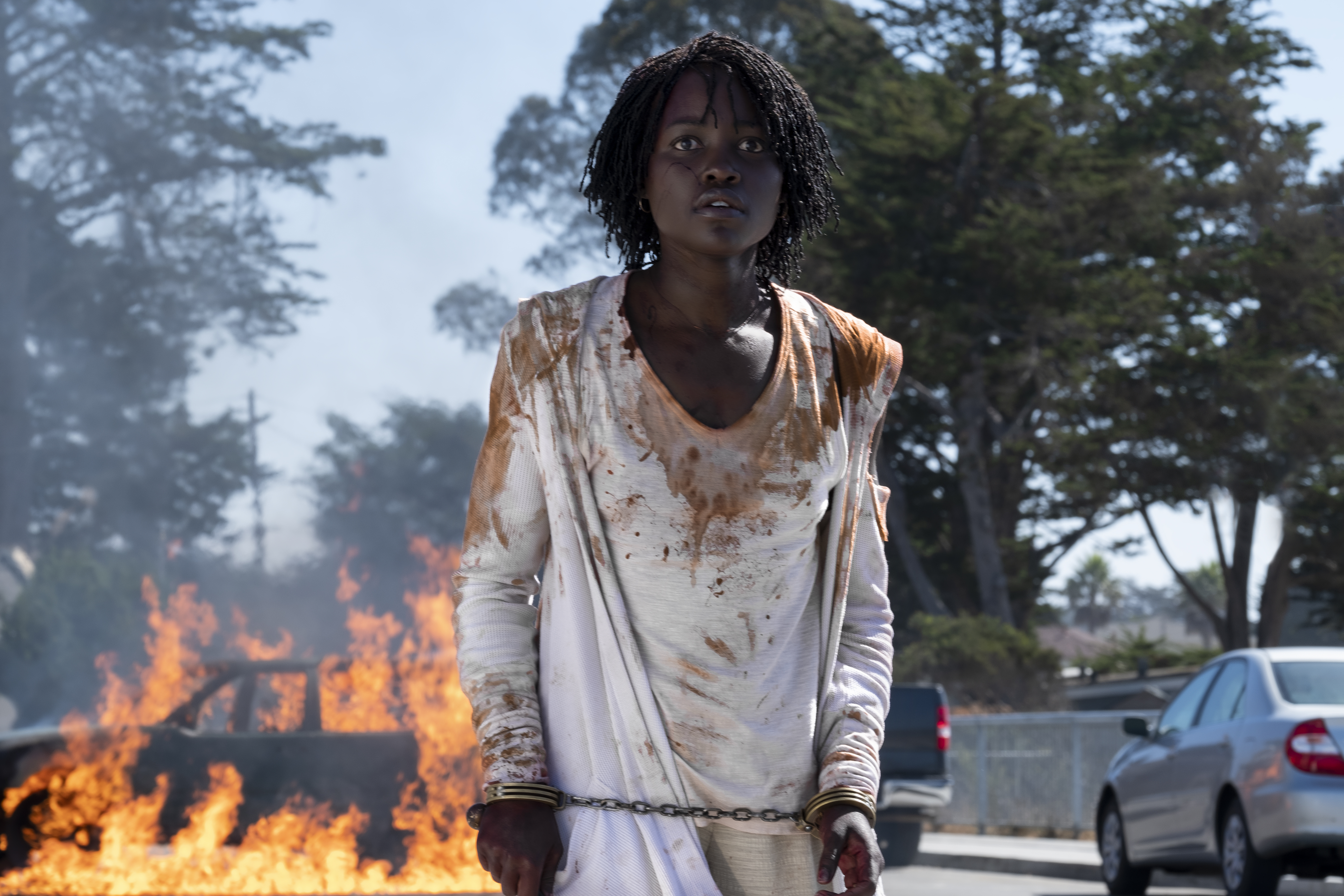
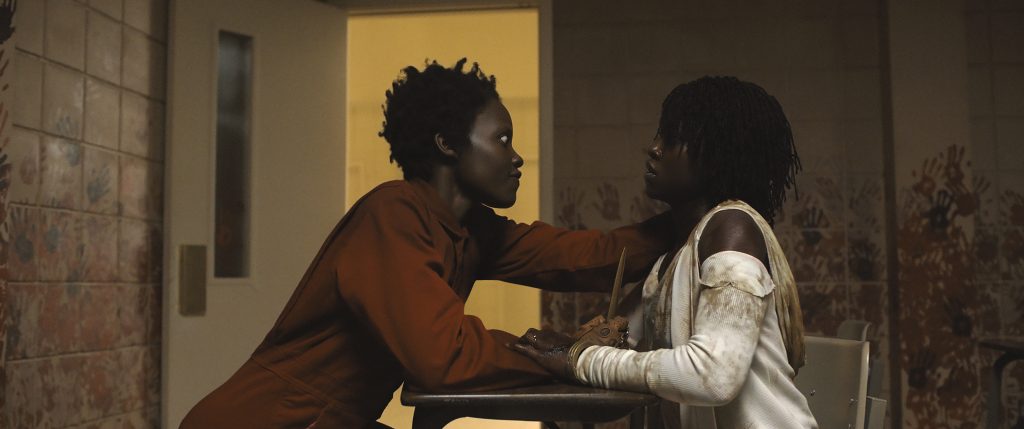
You may soon learn with bone-deep certainty that both scissors and blunt instruments make a real mess when used to end a human life, and it is disconcerting trying to kill someone who looks exactly like you. Welcome to US, Jordan Peele’s second effort as director, producer, and writer. It’s a terrifying bloody mess that will make you think, squirm, and scream, and make you repeat the process over and over through its playing time.
Adelaide Wilson (Lupita Nyong’o), her husband Gabe (Winston Duke), and their two children Zora (Shahadi Wright Joseph) and Jason (Evan Alex) are taking a summer vacation, but Adelaide is approaching the experience with trepidation. She had a traumatizing childhood experience at the very seaside town to which they are heading, and she has started seeing visual coincidences that remind her of that time as a young child. While at a carnival back in 1985, she wandered away from her distracted father and experienced a horror inside the funhouse. It is an experience that she has never been able to shake, and it’s ruining her fun on her holiday. After spending a day at the beach with bourgeois white friends Kitty and Josh Tyler (Elizabeth Moss and Tim Heidecker) and their vapid twin daughters Becca and Lindsay, (Cali and Noelle Sheldon), they come home for a nice evening in, when son Jason announces, “There’s a family in our driveway.” It’s no spoiler to say, since it’s in all the trailers, that the family of four in matching crimson jumpsuits clutching golden scissors and staring at them from the dark, is an exact copy of them. It becomes clear this set of doppelgängers not only knows how each of them thinks, they are determined to kill them and take their place. They are meeting the enemy, and the enemy is US.
Writer/producer/director Jordan Peele has made his love of horror films and their power clear with his first film Get Out. He is also spearheading a reboot of The Twilight Zone. In this case of US, he said he wanted to offer his take on the “evil-double”. Says Peele, “I was drawn to this idea that we are our own worst enemy. That’s something we all know intrinsically, but it’s a truth we tend to bury. We blame the outsider, we blame ‘the other.’ In this movie, the monster has our faces. Doppelgängers have always been a source of fear. It’s connected to your sense of mortality, I think. You can’t both exist, so one of you has to go. Throughout mythology, doppelgängers often represent bad omens or are a foreshadowing of one’s death. I wanted to pinpoint, and then develop the story, from that primal fear.”
He found the perfect partner to embody this concept in actress Lupita Nyong’o. She is the glue that holds the story together, and as an actress, she sharpens her thespian tools and tackles the dual roles with razor precision. In playing the ever-haunted Adelaide and her tethered shadow Red, Nyong’o has a way of drawing as much empathy for what we are meant to perceive as “the other”, as she does for her terrestrial target, defining them both clearly as characters, allowing us to glimpse their personal ghosts in how she uses body language and how she speaks. You may hear the raspy, throat-cut voice she uses for Red in your next nightmare.
The audience may be terrified of Red, but a few may begin to root for her just a little as well. One senses both of them are definitely “off”, but in different ways, and have literal and emotional skin in the game in terms of who survives their encounter. In finding our loyalties to her two selves torn, we are forced to consider a number of things. How often do we access our empathy? Do we deserve whatever position we hold in society? Should the versions of ourselves that surround us, the other Americans, those that share our gender, language, blood type, or just our humanity be seen as enemies? If so, in attacking them, are we not attacking ourselves?
All this may just be gobbledygook we can toss in exchange for just sitting on the edge of our seats and being entertained. Peele makes the movie fun, exciting, and very scary. As part of Key and Peele, he made great use of irony and parody, but there was always truth behind the sketches they did. Peele as a filmmaker expertly plays with turning that on its head, lightening moments at just the right time, in the right way, to aid in bring serious societal problems into better focus.
Still, not all the elements on offer in US come together. The performers are great, especially those playing dual roles. Elizabeth Moss may not be featured as much as the leads, but in one scene in particular, she sears herself into viewers’ memories, and might bring unbidden goosebumps for them later. Beyond Adelaide, however, we don’t get enough of a sense of the internal lives of the other Wilsons, or their doppelgängers. To sustain a connection to something deeper than a particularly engaging, exciting home invasion film, all the metaphors and symbology have to be, for lack of a better word, ‘tethered’ to character. It’s really left to Nyong’o to hold the emotional center, and there’s not enough context beyond her characters’ experiences to make it equal to Get Out, a film to which it will be inevitably compared.
In a way, with US he’s taking us to another sunken place, and starting systematically to track through where they all exist for us, (or for the U.S), and turning them towards us to take a cold hard look at them, and possibly our part of their existence. Nyong’o’s exquisite blend of nuance and scenery-chewing as Adelaide and Red deserves to be listed among the best horror performances ever. The trip through Peele’s story is a wild, exciting ride. For those reasons, we can overlook the uneven moments and the clumsier elements of his messaging, and just enjoy US as a solid second film by a filmmaker who is an undeniable talent building a strong body of work.
4 out of 5 stars

